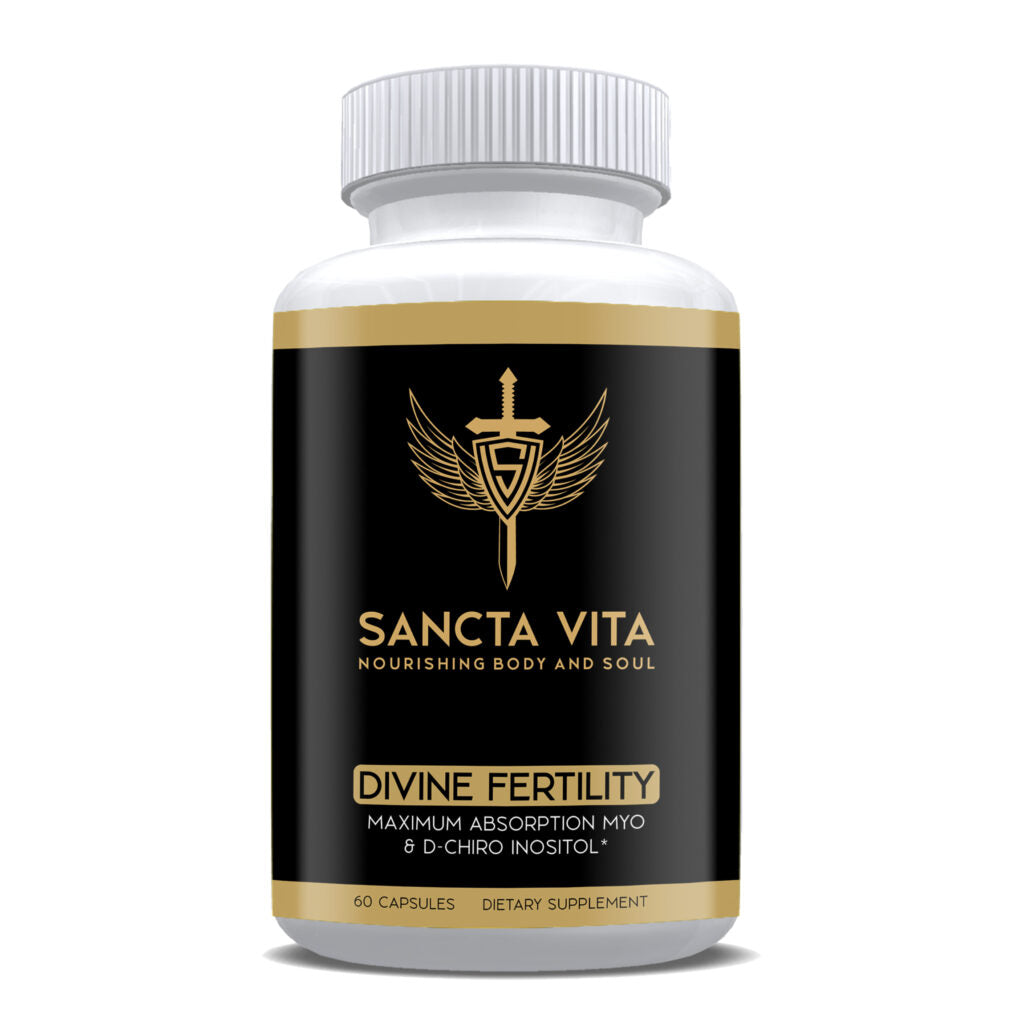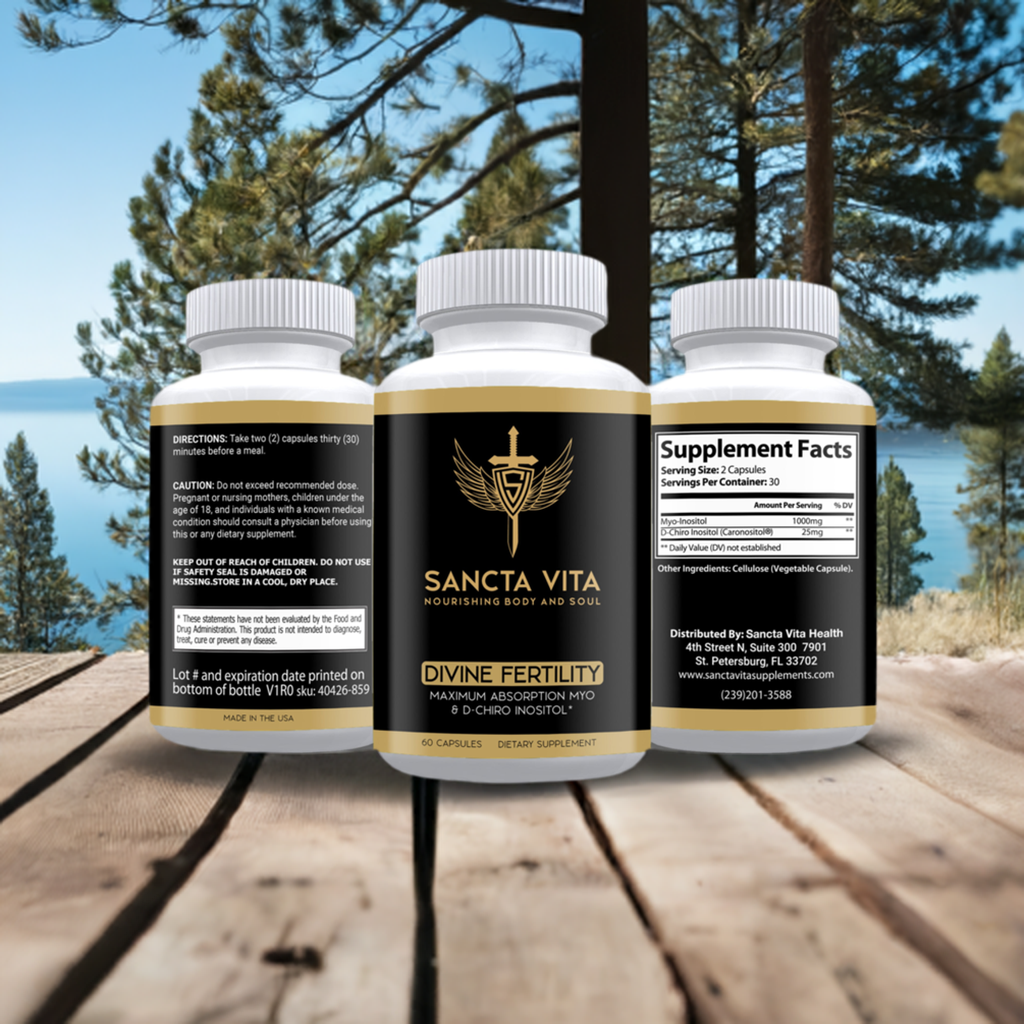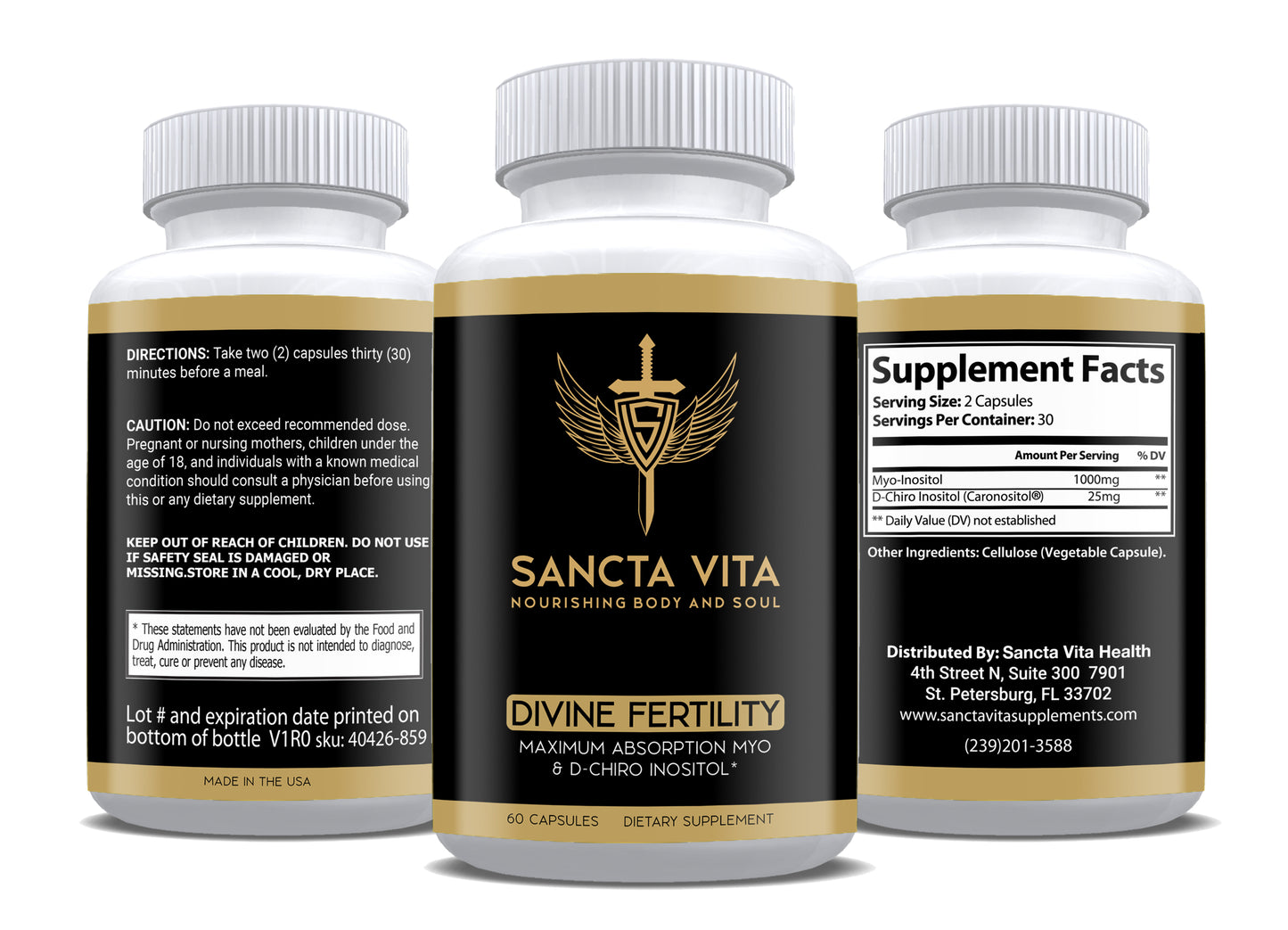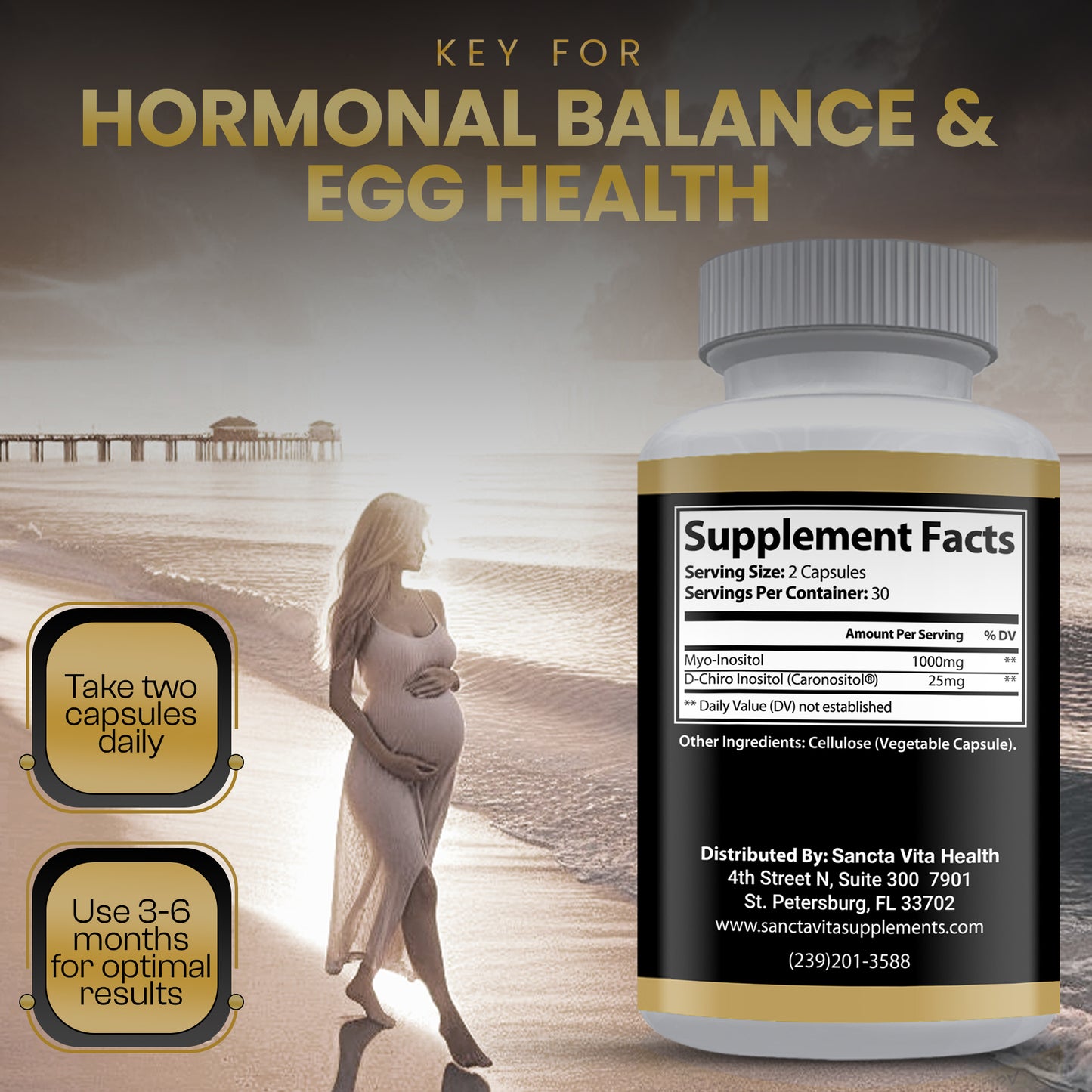
Transform Your Health with Inositol: A Wholesome Story
Share
Discover the inositol wholesome story that's transforming lives and revolutionizing health. This naturally occurring compound, found in fruits and grains, is emerging as a powerhouse nutrient with wide-ranging benefits for mental and physical well-being.
Key Takeaways:
- Inositol is a crucial component of cell membranes and signaling molecules
- It shows promising results in managing PCOS symptoms and improving fertility
- Inositol may help alleviate anxiety and depression symptoms
- Supplementation is generally safe with minimal side effects
- Consult a healthcare provider before starting an inositol regimen
Learn the Inositol Wholesome Story: Nature's Hidden Gem
Inositol, a naturally occurring sugar alcohol, is quickly becoming the talk of the wellness world. Found in fruits, beans, grains, and nuts, this versatile compound plays a crucial role in our bodies. As a key component of cell membranes and signaling molecules, inositol is involved in various bodily functions, including insulin signaling, neurotransmitter function, and fat metabolism.
There are two main forms of inositol: myo-inositol and D-chiro-inositol. Each form has unique benefits, contributing to the inositol wholesome story. From managing PCOS to easing anxiety and depression, the potential benefits of inositol are vast and promising.

Inositol and Women's Health: A Promising Ally in PCOS Management
Polycystic Ovary Syndrome (PCOS) affects 6-12% of women of reproductive age, making it a significant health concern. The inositol wholesome story shines brightly in this arena, offering hope to many women struggling with PCOS symptoms.
Studies have shown that inositol can improve insulin sensitivity and reduce testosterone levels in PCOS patients. In one notable study, women taking 2g of myo-inositol twice daily for 6 months experienced improved ovulation and pregnancy rates. Additionally, inositol may help reduce hirsutism and acne, common complaints among PCOS sufferers.
For those exploring fertility support options, inositol's potential in improving reproductive health is particularly exciting.
Learn the Inositol Wholesome Story: Calming the Storm Within
The inositol wholesome story extends beyond physical health, reaching into the realm of mental well-being. Inositol plays a crucial role in neurotransmitter signaling, making it a potential ally in managing anxiety and depression.
Research has shown promising results. In one study, 12g/day of inositol was as effective as fluvoxamine in treating panic disorder. Another study found that 18g/day of inositol significantly improved symptoms of Obsessive-Compulsive Disorder (OCD).
While more research is needed, the potential of inositol in supporting mental health is an exciting development in the inositol wholesome story.
Incorporating Inositol into Your Wellness Routine: Dosage and Considerations
As with any supplement, it's essential to approach inositol use thoughtfully. Typical dosage ranges from 2-18g per day, depending on the condition being addressed. While inositol is naturally present in many foods, supplementation may be necessary to achieve therapeutic doses.
Inositol has a strong safety profile, with only minor side effects like nausea, gas, or difficulty sleeping reported in some cases. However, it's crucial to consult a healthcare provider before starting any new supplement regimen, especially if you're taking medications or are pregnant or breastfeeding.
Remember, the inositol wholesome story is about integrating this powerful compound into a balanced, healthy lifestyle. It's not a magic solution, but rather a tool to support overall wellness when used appropriately.
Frequently Asked Questions About Inositol: The Inositol Wholesome Story
1. What is inositol, and how does it work in the body?
Inositol is a naturally occurring sugar alcohol found in fruits, beans, grains, and nuts. It plays a vital role in cell membrane formation and intracellular signaling. It supports insulin signaling, neurotransmitter regulation, and fat metabolism, making it essential for various bodily functions.
2. Learn the inositol wholesome story about helping with weight loss?
While inositol is not a direct weight-loss supplement, it may aid in managing conditions like PCOS, which can influence weight. By improving insulin sensitivity and reducing testosterone levels, inositol may help regulate metabolism, potentially supporting healthier weight management.
3. Is inositol safe to take during pregnancy?
Yes, inositol is considered safe during pregnancy. Studies show it may reduce the risk of gestational diabetes and improve insulin sensitivity. However, it is essential to consult a healthcare provider before starting inositol during pregnancy to ensure it's appropriate for your specific needs.
4. How long does it take to see results from taking inositol?
The time frame depends on the condition being treated. For PCOS, studies suggest noticeable improvements in ovulation and other symptoms after 3-6 months of consistent supplementation (2g myo-inositol twice daily). Mental health benefits, such as reduced anxiety, may take several weeks to manifest with higher doses (e.g., 12-18g/day). The inositol wholesome story can chage you in so may ways.
5. Are there any side effects associated with inositol supplementation?
Inositol is generally well-tolerated with minimal side effects. Some people may experience mild symptoms like nausea, gas, or difficulty sleeping when starting supplementation. These side effects are usually transient. Always start with a lower dose and consult a healthcare provider for guidance, especially if taking medications.
References
- Unfer V, Facchinetti F, Orrù B, Giordani B, Nestler J. Myo-inositol effects in women with PCOS: a meta-analysis of randomized controlled trials. Endocr Connect. 2017;6(8):647-658.
- Palatnik A, Frolov K, Fux M, Benjamin J. Double-blind, controlled, crossover trial of inositol versus fluvoxamine for the treatment of panic disorder. J Clin Psychopharmacol. 2001;21(3):335-339.
- Fux M, Levine J, Aviv A, Belmaker RH. Inositol treatment of obsessive-compulsive disorder. Am J Psychiatry. 1996;153(9):1219-1221.
- Carlomagno G, Unfer V. Inositol safety: clinical evidences. Eur Rev Med Pharmacol Sci. 2011;15(8):931-936.
Sources:









